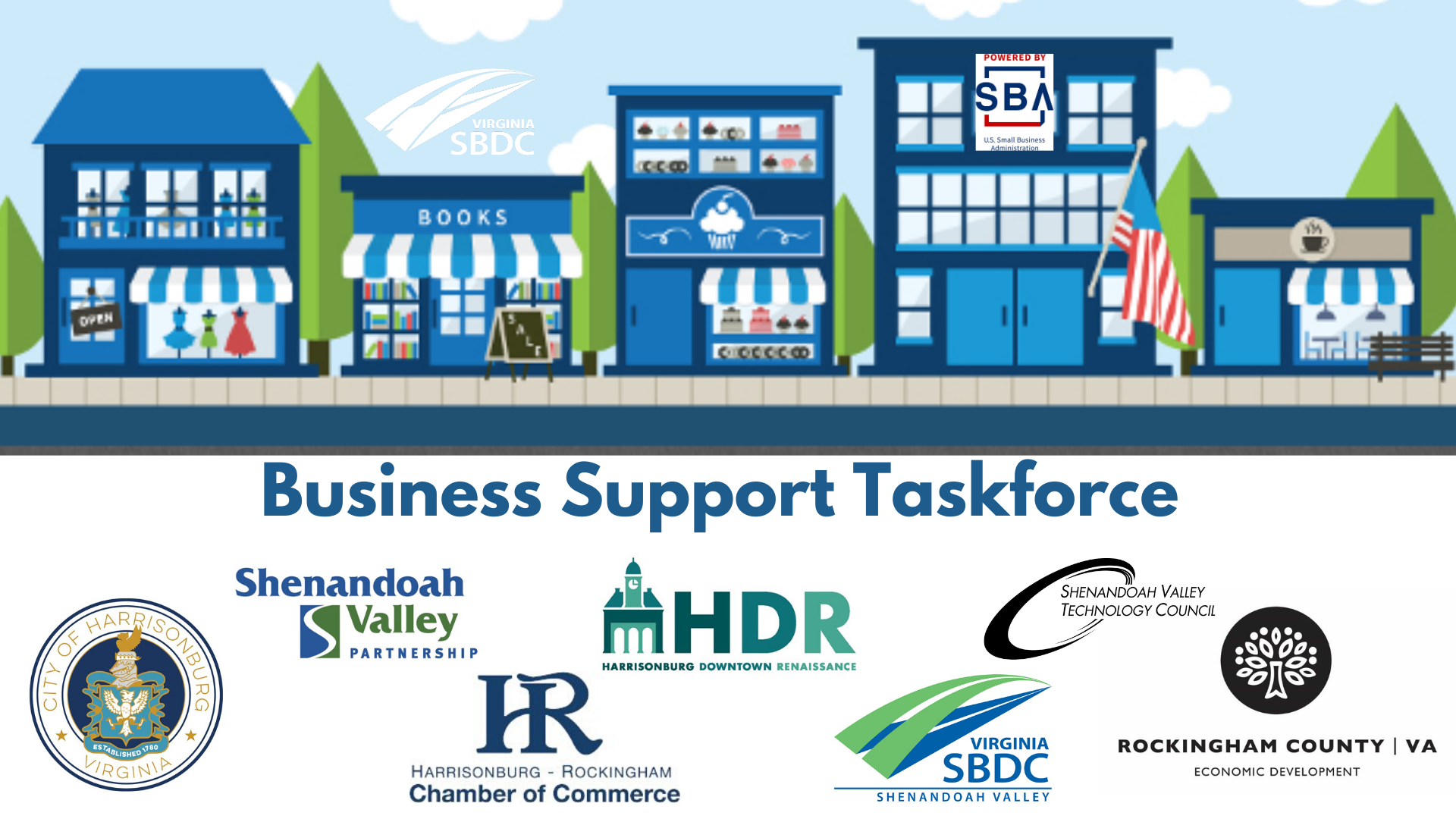SBDCs launch COVID-19 recovery initiative to promote economic stability, sustainability, and growth.
The GO Virginia State board has approved an $81,813 grant proposal submitted by a regional partnership between Harrisonburg Economic Development, Frederick County Economic Development, Shenandoah Valley Small Business Development Center (SV SBDC), and Lord Fairfax Small Business Development Center (LF SBDC). This grant creates a Small Business Resiliency Team (SBRT) program with the goal of providing expanded business support services and technical assistance to area businesses in the wake of COVID-19 challenges. The program will deploy Business Resiliency Navigators to guide growth-oriented businesses through a dedicated and well-designed process for achieving incremental and sustainable growth throughout the pandemic recovery period.
Business Resiliency Navigators will work directly with small businesses, assisting with E-commerce, Financial Management, and Marketing needs. The SBRT’s focus is on tourism, retail, healthcare, and professional services businesses, however other companies will be considered. In addition to providing assessments, development of action plans, strategic counseling, and targeted training, the program will provide for services such as accounting, bookkeeping, website development, or e-commerce assistance rendered by industry experts as recommended by the SBRT.
The Virginia Initiative for Growth and Opportunity (GO Virginia) is a business-led initiative that was formed to foster private-sector growth and diversification across nine economic development regions in the Commonwealth. The GO Virginia Board administers state financial incentives designated for regional projects in order to encourage collaboration between private sector companies, workforce, education, and government.
Participating localities include the counties of Augusta, Clarke, Frederick, Rockbridge, Rockingham, and Shenandoah; and the cities of Harrisonburg, Waynesboro, and Winchester. Patrick Barker, CEcD, Executive Director of Frederick County will administer the grant.
“This partnership will be able to provide significantly more assistance to keep businesses healthy and growing in spite of the pandemic. Our SBDCs can collaborate and meet needs of Economic Development Offices throughout the Shenandoah Valley. Our goals include improving the local economy, assisting the participating businesses, and providing contracted work to local vendors for professional services,” said Joyce Krech, Director of the Shenandoah Valley SBDC.
The SBRT program supports GO Virginia goals by expanding regional capacity to coordinate and deliver business support services; helping businesses utilize e-commerce to increase sales; reducing service and production disruptions; encouraging the use of a remote workforce to keep workers employed and productive; and expanding existing training programs that are mission-critical. Expected results from dedicated participants include overall average business growth and retention of their current workforce.
“This grant award will help us keep many of the region’s growth-oriented businesses on a positive financial trajectory towards sustainable success. We will leverage existing resources and utilize GO Virginia funds to provide focused, hands-on consulting, training, and contracted work,” states Christine Kriz, Director of the Lord Fairfax SBDC.
For more information on the Small Business Resiliency Teams, click the SBRT tab on the navigation bar above.
For more information on GO Virginia, visit the Shenandoah Valley Partnership or the Virginia Department of Housing and Community Development.
About Small Business Development Centers. The SV and LF SBDCs are two of 27 Small Business Development Centers across Virginia providing professional business advice, training, and information resources to help grow and strengthen local businesses and Virginia’s economy. They are hosted respectively by James Madison University and Lord Fairfax Community College in partnership with George Mason University and funded in part by SBA and local governments. The Virginia SBDC Network is the most extensive business development program in the Commonwealth and part of America’s SBDC – the nation’s proven, cost-effective, and accredited infrastructure focused on small businesses – America’s job creators.


